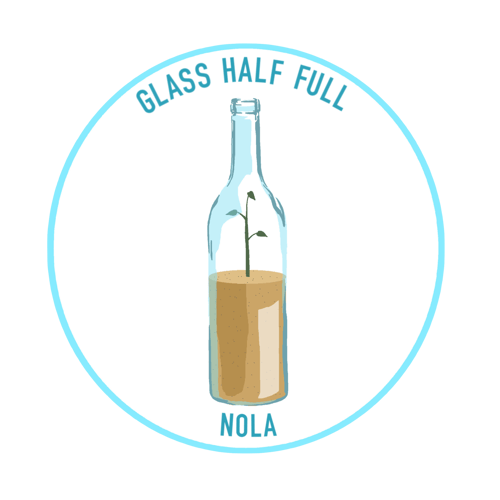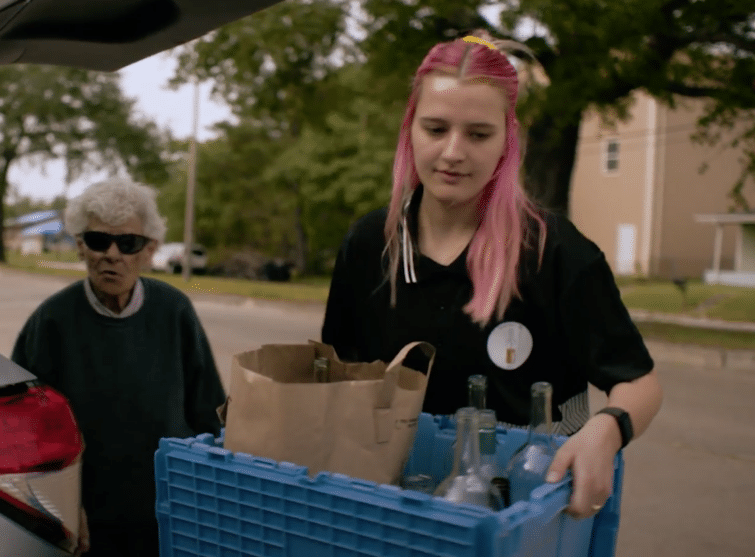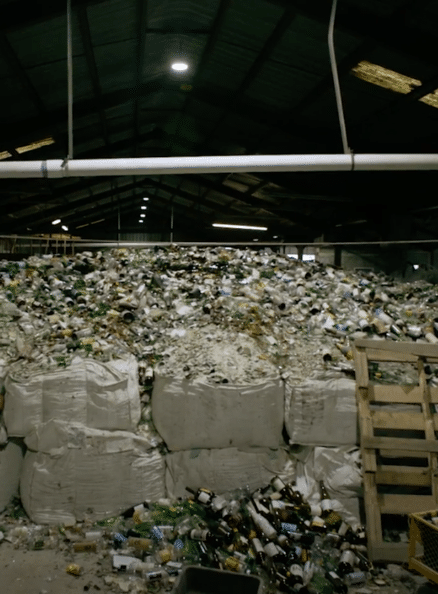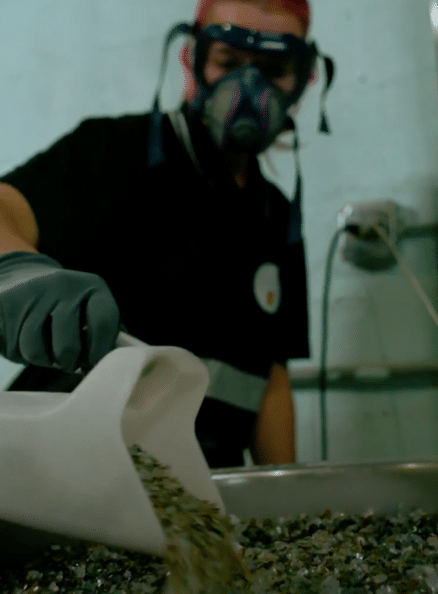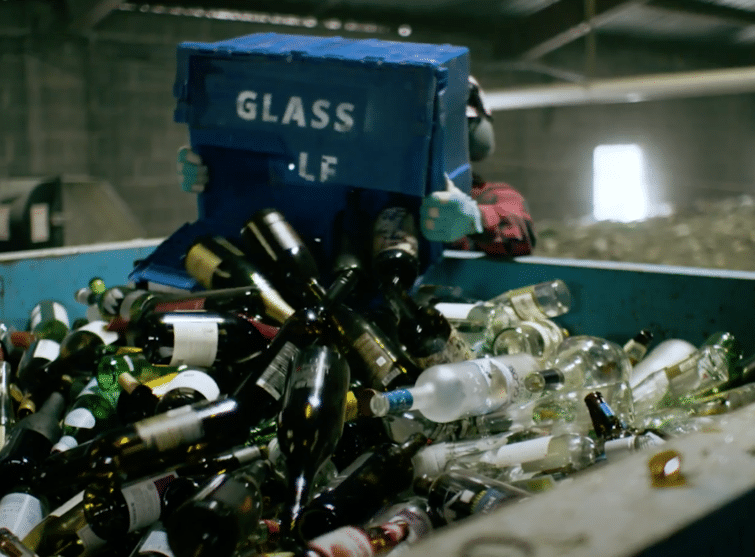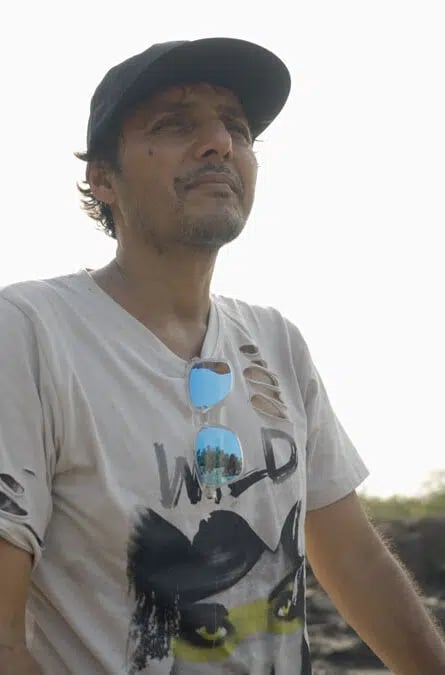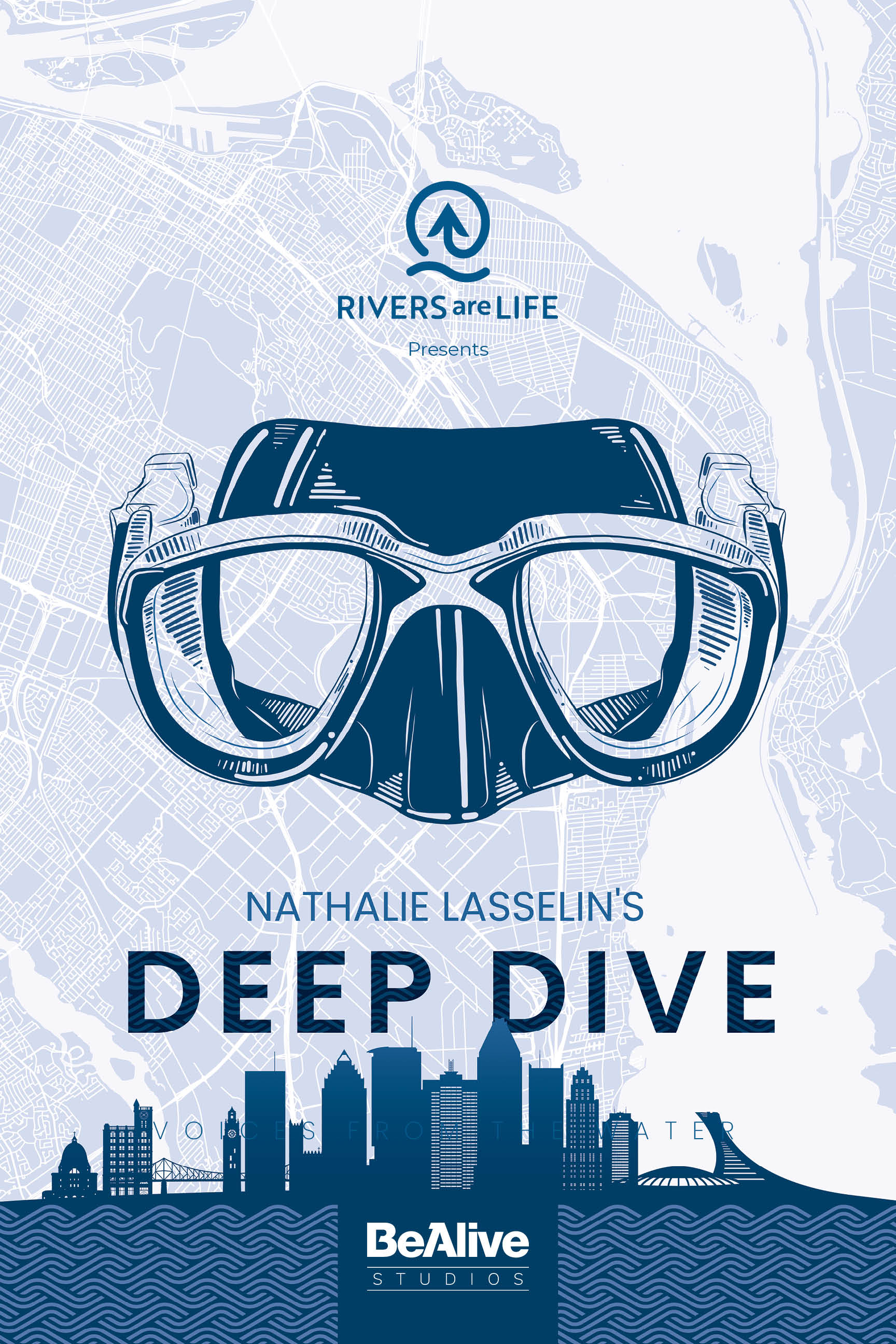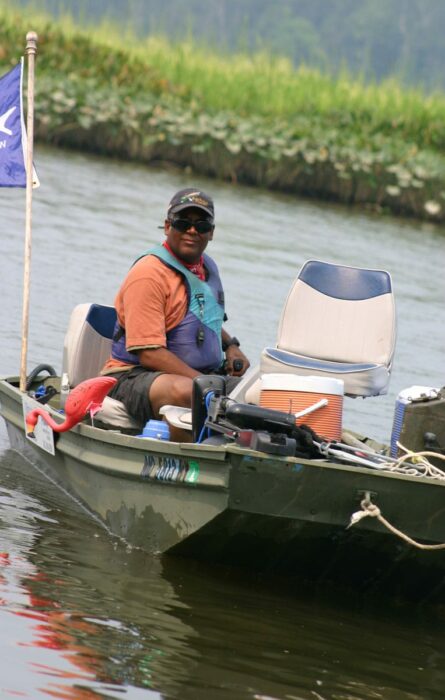GLASS HALF FULL: FRAN & MAX
Presented By: Rivers Are Life
“We have a saying over here that like most crazy ideas, it started over a bottle of wine.”
Glass Half Full
That’s Max Steitz, co-founder of Glass Half Full, a grassroots glass recycling program based in New Orleans. Co-founder Franziska Trautmann adds with a laugh, “We were always hanging out in his creepy basement that he lived in and drinking wine from Trader Joe’s.”
They wondered, what’s the destiny of a glass bottle? Is it doomed to clutter our streets, landfills, and rivers? Modern glass takes about 4,000 years to decompose, but the average glass produced is estimated to stick around for 1 million years – that number is even higher if it’s in a landfill. As they poured the last drop of wine, they thought about all the bottles they had emptied. Neither New Orleans nor Louisiana had a glass recycling program. There had to be a better solution.
“We started to research it and realized that we could actually take glass waste and turn it into a usable, super soft sand and glass gravel product,” says Steitz. “So, we jumped into action.”
Max & Fran and their work at Glass Half Full are featured in “Voice From The Water” film below.
The Beginning
The river is our livelihood, and you don’t just give up on your livelihood,” says Trautmann.
In Feb. 2020, they started by hand-crushing glass in their backyard until they could raise the initial capital through GoFundMe. Neither of them expected the outpouring of community interest that would follow. By August of that year, they were moved into a 40,000-square-foot facility. There, they had the capacity to recycle New Orleans’ glass waste.
“It was just awesome to realize that other people cared about this,” says Trautmann.
To process the glass, they first sort everything by color. Then, they remove anything non-glass (e.g., caps, corks) except the labels and grind up the glass. The labels and non-sand particulates are filtered out of the mixture. This final product is then sorted and bagged depending on what its end-use is: new glass products, eco-construction, soil, art, or more.
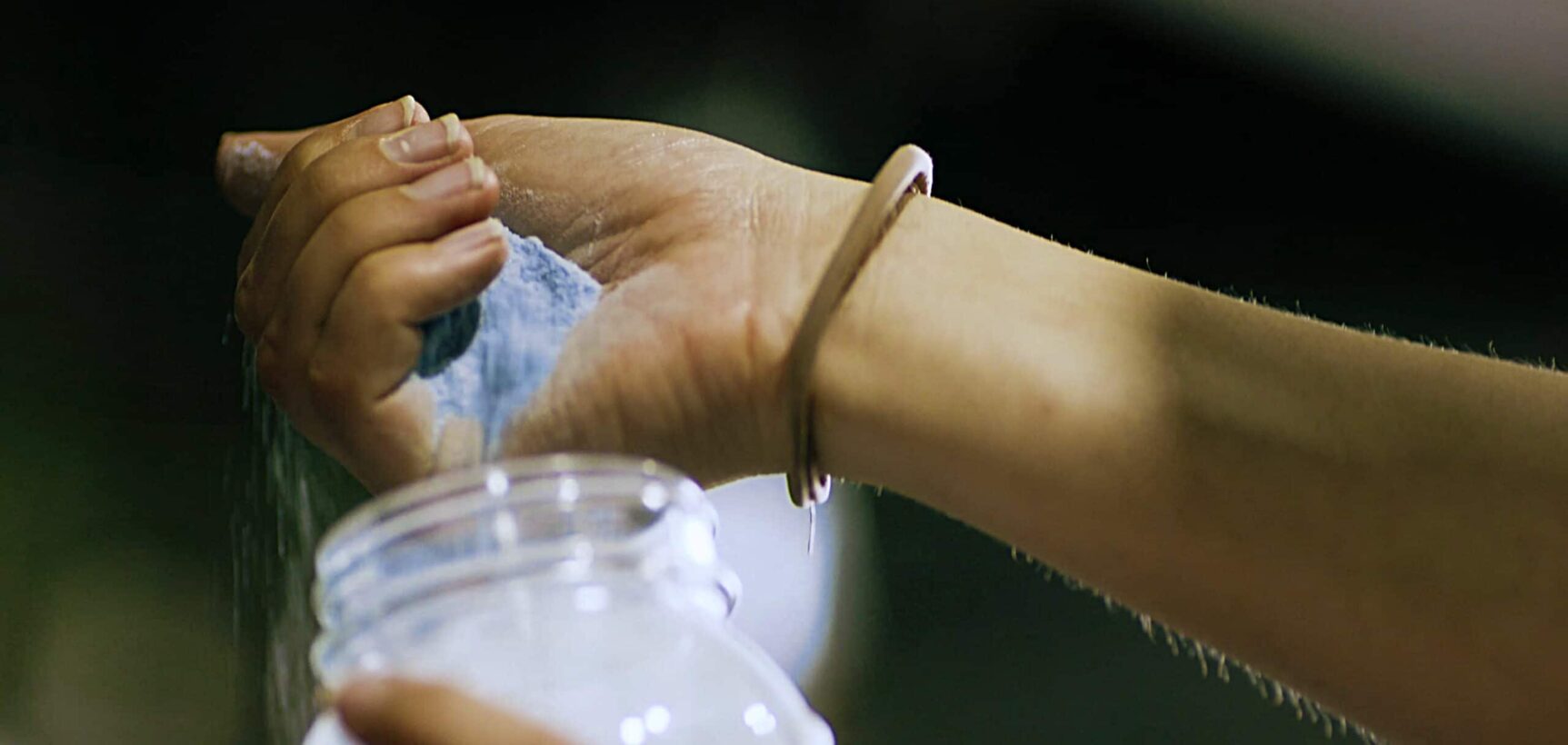
SCIENCE OF SUSTAINABILITY
We are currently facing a global sand shortage as this natural resource is exploited at an alarming rate. With the sand we create, we aim to provide an alternative to harmful sand extraction techniques like dredging and mining. These methods disrupt local ecosystems and contribute to the coastal erosion crisis. Restoring Louisiana’s diminishing coast will require hundreds of thousands of cubic yards of sand, further intensifying coastal erosion if this sand is dredged and sucked from the bottom of our waterways– a process which costs the city millions of dollars annually. Our converted glass-product, a super soft beach-like sand, can rebuild entire coastlines at a fraction of the price.
(Source: Glass Half Full)
Discover MoreA Bottle's Second Life
“Whether it’s through recycling or picking up trash that you see, individuals can make huge change when we come together,” says Trautmann.
Thankfully, Glass Half Full is able to recycle 98% of what they receive. Only 2% ends up in a landfill, unlike the 60-90% an average recycling center would throw away. Glass Half Full employs a team of engineers, ecologists, biologists, and other scientists to ensure the feasibility, safety, and implementation of using recycled glass sand for coastal restoration.
If you’re local to the area, you can join the movement by dropping off glass on specified days. For a small fee, you can even schedule pick-ups. They’re always looking for volunteers to help, too.
If you want to get involved but you’re not in New Orleans, you can make a donation to Glass Half Full. You can also fundraise, spread the word, or initiate a glass collection bin/drive at your workplace or school.

1,200 VOLUNTEERS
Have joined to help make glass recycling more enjoyable, equitable, and accessible.

2.2MM POUNDS OF GLASS
Diverted from landfills in New Orleans

25K POUNDS OF SAND
Used in coastal restoration projects.


